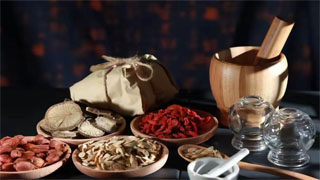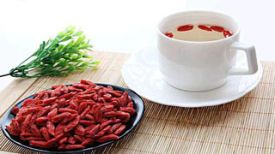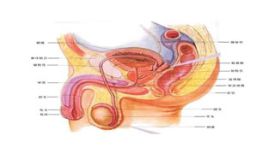
We modern people can't sleep anymore, counting stars, counting sheep. What did ancient people do when we couldn't sleep?
Recite poetry and compose prose! For example, the famous Tang Dynasty poet Zhang Ji's poem "Night Mooring at Maple Bridge": The moon falls and the sky is covered in frost, and the river maple and fishing fire bring sorrow to sleep; Hanshan Temple outside Gusu City, the midnight bell rings on the passenger ship.
It was already late at night, but the poet had no sleepiness at all. He could only listen to the bell ringing from the ancient temple in Hanshan outside Gusu City from afar, one or two times
Why can't I sleep? Because it's annoying.
I don't know if everyone has noticed, but when people feel very annoyed, they have a more obvious characteristic - hot, both annoyed and hot! At this point, we need to consider whether there is a lack of yin? It's just that the kidney water is not enough.
There is a theory in traditional Chinese medicine that the heart and kidneys intersect, with the heart controlling fire and located above; The kidneys control the water, below. Heart fire needs to go down, why go down? Go warm the kidney water, and the kidney water needs to go up to restrain heart fire. The heart and kidneys are connected like a circle, so that the kidney water is not too cold and the heart fire is not too hot.
If the kidney yin is insufficient and the kidney water is not enough, it will fall down before reaching the junction while walking. The kidney water cannot rise, the heart fire cannot be lowered, and there is always a fire floating in the chest, so it will feel annoyed and hot, and even at night, it will not sleep well.
To summarize, firstly, there is insufficient kidney yin, which leads to a lack of communication between the heart and kidneys. There is a "rift" between the heart and kidneys, and there is no interaction or intersection between them. This will definitely cause problems in the body.
So the intersection of heart and kidney is a crucial step, just look at nature and you will know.
Nature has two ends: heaven and earth. The water on the ground rushes down from the mountains, cascades for thousands of miles, and then flows into the sea. Finally, it evaporates and rises under the sun, becoming clouds in the sky, and soon falls into rain, returning to the mountains.
Our ancestors have long observed this, as stated in "The Great Treatise on the Response of Yin and Yang" in "Su Wen": "The earth's qi is clouds above, and the weather is rain below. Rain produces earth's qi, and clouds produce weather
Everyone can think about it, if any of these links go wrong, will there still be so many colorful lives on this earth?
Of course, this does not mean that all insomnia is caused by heart kidney dysfunction. Today, we will only analyze from this perspective. Once this situation occurs, what methods should be used?
In Chen Shiduo's "Dialectical Record" of the Qing Dynasty, a famous doctor recorded a prescription called Jiaohe Tang. The so-called Jiaohe implies the connection between the heart and kidneys.
Jiaohe Tang: 15g ginseng (Codonopsis pilosula), 60g Radix Rehmanniae, 0.9g Huanglian, 1.5g cinnamon, decoct in water and take orally.
Effect: Nourish yin and reduce fire, communicate with the heart and kidneys.
Because yin is insufficient, the prescription uses a large amount of cooked land to supplement kidney yin.
There is a saying that says there should not be too many varieties of Rehmannia glutinosa. If you plant too many, the soil will lose its fertility. Why is that said? What is this Dihuang called? The essence of the earth.
That is to say, it can absorb the essence of the land into itself and seal it up. Is it a bit like a human kidney? Is the kidney sealed.
Shu Di has a relative named Sheng Di. After processing, Sheng Di turns black, which is called Shu Di. Shu Di is a medicine that enters the kidneys. Because the kidneys are black in color, the kidneys prefer black. To nourish the kidneys and make them better, they eat more black foods.
Rehmannia root eliminates the coolness of the raw earth, nourishing yin and blood while also having the effect of clearing heat. Rehmannia root has a warm medicinal property, which is a deliberate tonic.
We say that in order for kidney water to rise, there must be an external force pushing it forward. What is this force? It is the gasification function of kidney yang. It's like cooking rice. If the heat below is not enough, the steam cannot steam up. When we increase the heat, as soon as the steam evaporates upwards, the lid of the pot slowly becomes moist.
So I added cinnamon again, using cinnamon to warm and nourish kidney yang.
Cinnamon can not only replenish yang energy, but also stimulate it. On the back of a person, directly facing the navel, there is a acupoint called the Mingmen acupoint, where yang energy is hidden. Cinnamon can knock on this door and call out yang energy. Under the stimulation of kidney yang, kidney water can move upward without hesitation and reach a high position.
There is a question, why choose cinnamon when there are so many warm yang medicines?
This brings us to another function of cinnamon, which is to ignite the fire and restore the essence.
Cinnamon can bring down the fire of the heart and lead it into the water of the kidneys, resembling a hub that can both raise the water of the kidneys and bring down the fire of the heart, achieving a perfect state of harmony between water and fire in the body.
Cinnamon also has a relative called cinnamon, and many people always confuse the two, thinking that cinnamon and cinnamon refer to the same medicinal herb. In fact, the function of cinnamon cannot be equated with cinnamon.
Following closely is Huanglian, which has a bitter taste and can clear heat. The body is a bit hot, and Huanglian can clear it up. Here, Huanglian is used to clear the floating heart fire. The combination of Huanglian and cinnamon is also a famous formula called Jiaotai Wan. It can be used for those with insufficient kidney yang and heart kidney dysfunction.
Finally, ginseng. People who are troubled by heat tend to sweat more because internal heat can force their body fluids to go out. We say that body fluids can carry qi, and when body fluids leak out, they also bring out qi. Ginseng can replenish the weakened qi.
Here, the four herbs have solved all the symptoms of insomnia, irritability, and excessive sweating.
Chen Shiduo commented on this prescription as follows: "One dose is enough to sleep, ten doses are safe
After drinking one dose of medicine, he fell asleep immediately after pouring his head; After drinking ten doses of medicine, the insomnia problem was completely cured. Although there are exaggerated ingredients, it also indirectly indicates that the formula of Jiaohe Tang has a good effect.
⊙ The content of the article is for clinical reference only. Non TCM professionals are not allowed to test drugs.


